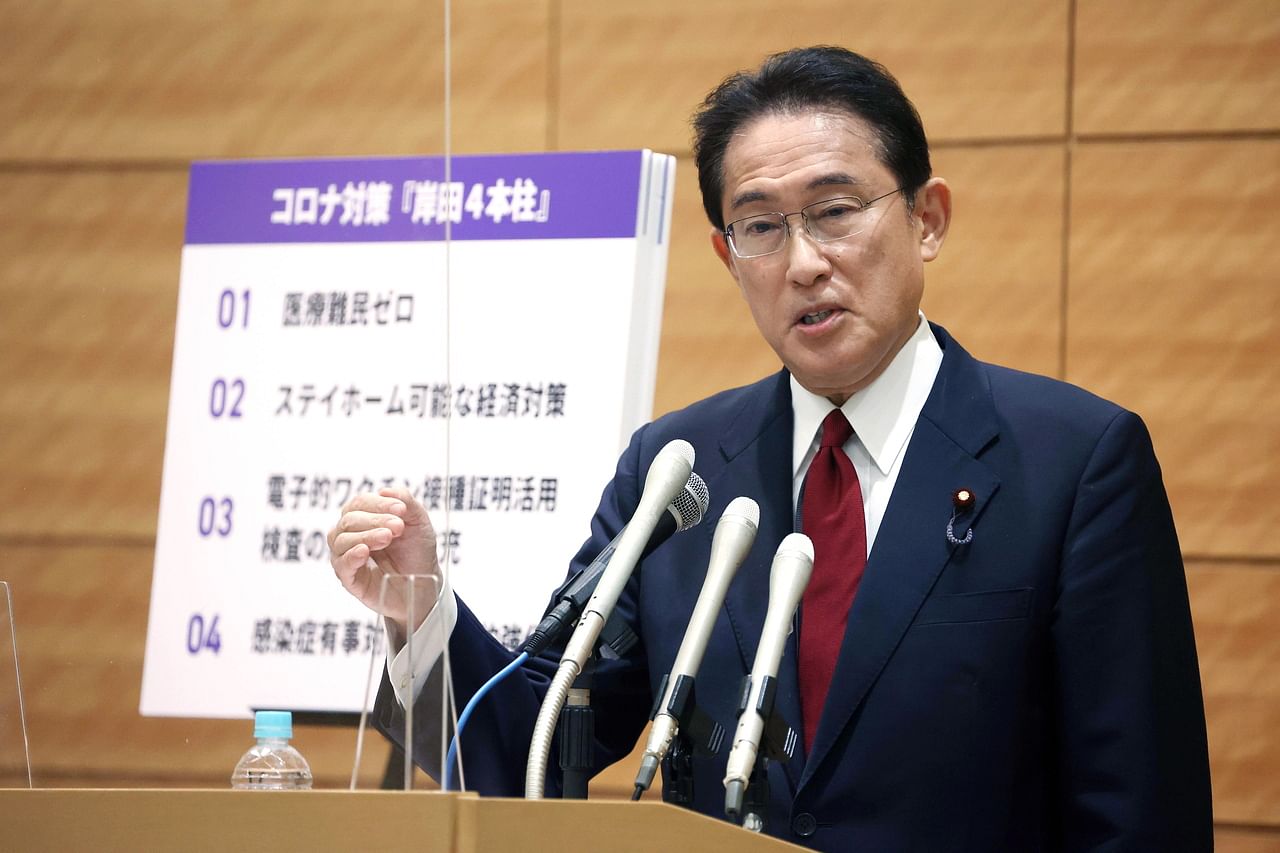TOKYO - Japan is a nation with many superstitions, and as Prime Minister Yoshihide Suga calls time on his year-long tenure as its leader, he will no doubt be aware of the two jinxes that ruined his political career.
First, no premier has survived in a year when Japan hosted the Olympics - in the 1964 Tokyo Games, the 1972 Sapporo Winter Games or the 1998 Nagano Winter Games - even if they all resigned for different reasons.
Second, a period of political stability is followed by a revolving door of prime ministers. Until Mr Shinzo Abe took office in 2012, there were six prime ministers in as many years after Mr Junichiro Koizumi stepped down after five years in power. And before that, there were 10 leaders over 14 years after Mr Yasuhiro Nakasone, who was in office from 1982 to 1987.
Even the pro-government Yomiuri newspaper headlined a story on Friday (Sept 3) with "Desperate Japanese prime minister has few options in bid to save his job".
Sophia University political scientist Koichi Nakano told The Straits Times: "Suga appears like King Lear, desperately clinging to power, but it has become increasingly apparent that he was completely pushed to the corner and he has exhausted every available option.
"Each time he tried something new, he was finding himself more and more isolated. I think he intended to stay on, but it was against heavy odds."
Mr Suga came to power in September last year as the antithesis to tradition within the Liberal Democratic Party (LDP), scoring high approval ratings for his rise to the pinnacle despite a humble background as the son of Akita strawberry farmers, and despite not belonging to any party faction.
But he quickly fell out of favour with the public over what was perceived as a blundering response to Covid-19. Mr Suga's poor approval ratings of around 30 per cent led to unease within the party, and this was compounded by his inability to coalesce a solid party base during his year in office.
Dr Nakano pointed out that this meant he was subject to the headwinds of an intense political rivalry between LDP secretary-general Toshihiro Nikai on one end, and Mr Abe and Finance Minister Taro Aso on the other.
"He's a general without his own troops," Dr Nakano said.
To make matters worse, some of Mr Suga's closest allies have been tainted by corruption scandals, including former justice minister Katsuyuki Kawai and former trade minister Isshu Sugawara, who were both indicted.
"He was left at the mercy of these political headwinds with nobody to protect him, nor did he come up with any effective measures to fight back," Dr Nakano added.
Dr Mikitaka Masuyama of the National Graduate Institute for Policy Studies in Tokyo told ST that it was "incomprehensible" for a prime minister responsible for the current policies to be quitting at this stage.
"I think he has realised the changing mood inside the party over the last few days," Dr Masuyama said.
Mr Suga scrambled to find a way to save his job this week. Yet his efforts only incurred a backlash within the LDP.
He mooted dissolving the Lower House next week for a snap election to win a popular mandate, which would have pushed back the calendar for the LDP presidential election.
But Mr Suga's reputation among the public, according to opinion polls, had become so noxious that many junior LDP lawmakers feared fighting an election with him as their leader.
He was then put on the back foot by his key rival, former foreign minister Fumio Kishida, who said he would freshen up the party image if he were elected by booting out Mr Nikai, the 82-year-old party secretary-general.

Mr Suga followed suit by saying that he would reshuffle the LDP leadership positions, and possibly the Cabinet, next week. But he was unable to settle on a combination that would please everybody.
Yet his decision to force out Mr Nikai - while seen positively by Mr Abe and Mr Aso - alienated the Nikai faction that had propelled him to office.
He then thought of appointing former defence chief Shigeru Ishiba as secretary-general to help freshen up the party image. Mr Ishiba ranks among the top in media surveys of the public's choice for next prime minister.
Mr Ishiba, though, is deeply unpopular among influential LDP party brass, including Mr Abe and Mr Aso.
"Without his own power base within the LDP, Suga was utterly at the mercy of the five largest factions that put him as PM in the first place. But now, he cannot count on any of them to give him solid support," Dr Nakano said.
What complicates things for Mr Suga is the unique political circumstances he found himself in this year, as the LDP presidential race and the general election will be held within weeks of each other.
Dr Masuyama noted that the single-member district electoral system has made a party leader's popularity "significantly influential" in election results.
"Party leaders need to be appealing to floating voters," he said, adding that the LDP's forthcoming presidential election has taken on added significance since a new leader could have an outsized impact on the party's chances at the general election, which will likely be held next month.
https://news.google.com/__i/rss/rd/articles/CBMieWh0dHBzOi8vd3d3LnN0cmFpdHN0aW1lcy5jb20vYXNpYS9lYXN0LWFzaWEvZGVzcGVyYXRlLWJ1dC1zaG9ydC1vZi1vcHRpb25zLXN1Z2EtaGFkLW5vLWNob2ljZS1idXQtdG8tcXVpdC1hcy1qYXBhbnMtcHJpbWXSAQA?oc=5
2021-09-03 06:51:19Z
52781856648334
Tidak ada komentar:
Posting Komentar